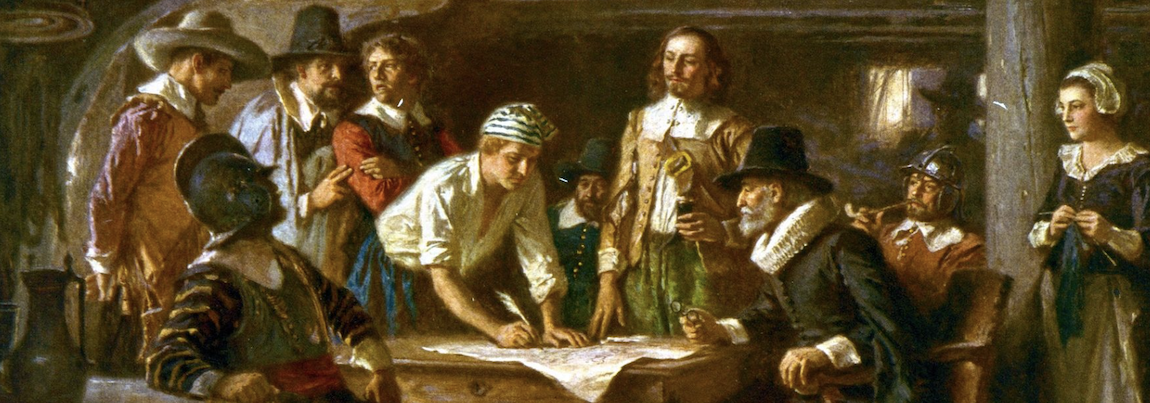This article describes the creation, meaning, and legacy of the Mayflower Compact - the document that some say describes America's first rudimentary constitution.

Introduction
The Mayflower Compact was one of the first governing documents in American history. It described principles of self-governance, cooperation, and democracy that would shape the nation's future. Drafted aboard the Mayflower in 1620 by the Pilgrims, a group of English settlers seeking religious freedom, this compact established a framework for governance in the New World and laid the groundwork for the development of American democracy.
The Need for Agreement
In the early 17th century, the Pilgrims, persecuted for their religious beliefs in England, sought refuge in the Netherlands before embarking on a perilous journey to the New World aboard the Mayflower. Arriving off the coast of present-day Massachusetts, they faced the daunting task of establishing a settlement in a harsh and unfamiliar land.
The Creation of the Compact:
As the Pilgrims prepared to disembark from the Mayflower, they recognized the need for a formal agreement to govern their fledgling community. Tensions has been simmering due to the fact the Mayflower had anchored hundreds of miles north of the supposed destination of Virginia. On November 11, 1620, before setting foot on Plymouth Rock, the adult male passengers aboard the ship gathered in the cabin to draft and sign the Mayflower Compact. This compact served as a social contract, binding the signatories to abide by the rules and regulations established for the general good of the colony.
Key Provisions of the Mayflower Compact
The 200-word Mayflower Compact emphasized the principles of consent of the governed and the rule of law. It affirmed the settlers' allegiance to the English crown while asserting their right to self-government. Key provisions of the compact included:
Government by the Consent of the Governed: The compact declared that the settlers would "combine ourselves together into a civil body politic" and enact laws, ordinances, and offices for the general good of the colony, with the consent of the majority.
Equality and Fairness: The compact recognized the equality of all signatories before the law and pledged to govern "just and equal laws" for the general welfare of the colony.
Religious Freedom: While rooted in Christian principles, the compact did not impose religious conformity and allowed for freedom of conscience and worship among the settlers.
Legacy and Significance: The Mayflower Compact laid the foundation for democratic governance in America and influenced subsequent documents, such as the Declaration of Independence and the U.S. Constitution. It exemplified the Pilgrims' commitment to democratic ideals and the rule of law, forging a path toward representative government and individual liberty in the New World.
Related activities
Advertisement

